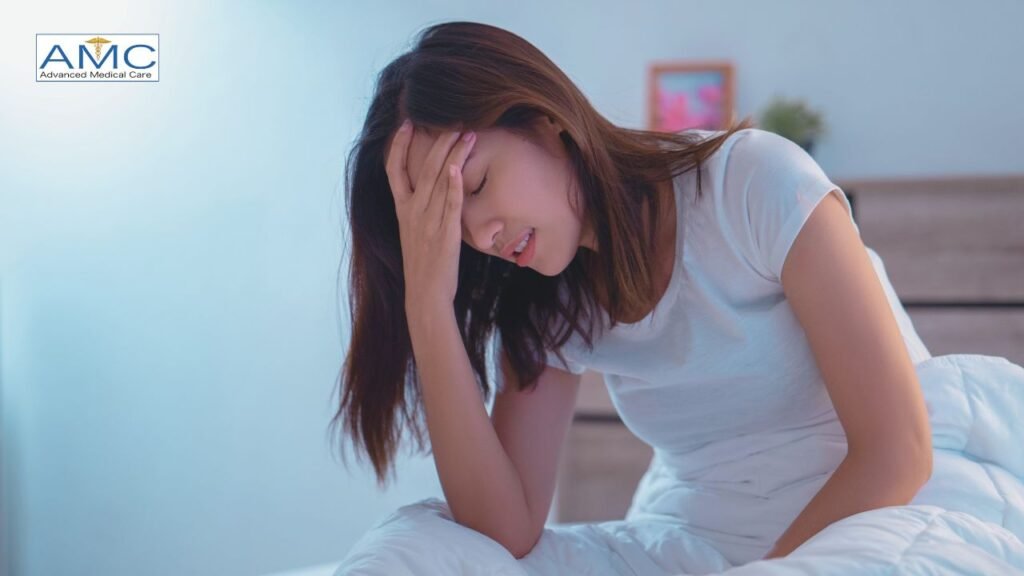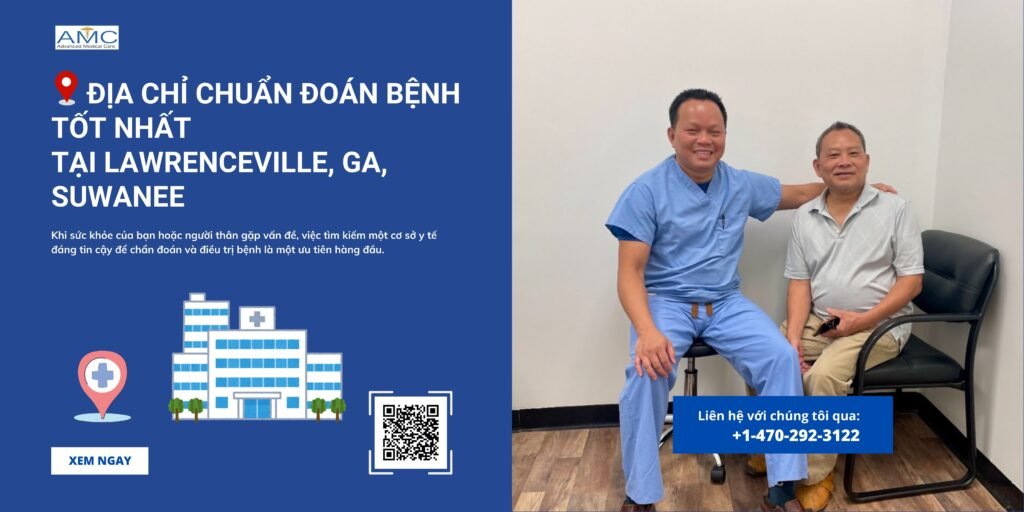Sleep is essential to overall health and well-being, yet millions of people struggle to get the quality rest they need. If you find yourself tossing and turning at night or waking up feeling less than refreshed, it may be time to seek expert help. Lawrenceville, Georgia, is home to some of the top sleep medicine specialists who are dedicated to helping you overcome sleep disorders and achieve restorative rest. Whether you’re dealing with insomnia, sleep apnea, or other sleep-related issues, the right specialist can make all the difference in improving your sleep quality and, ultimately, your quality of life.
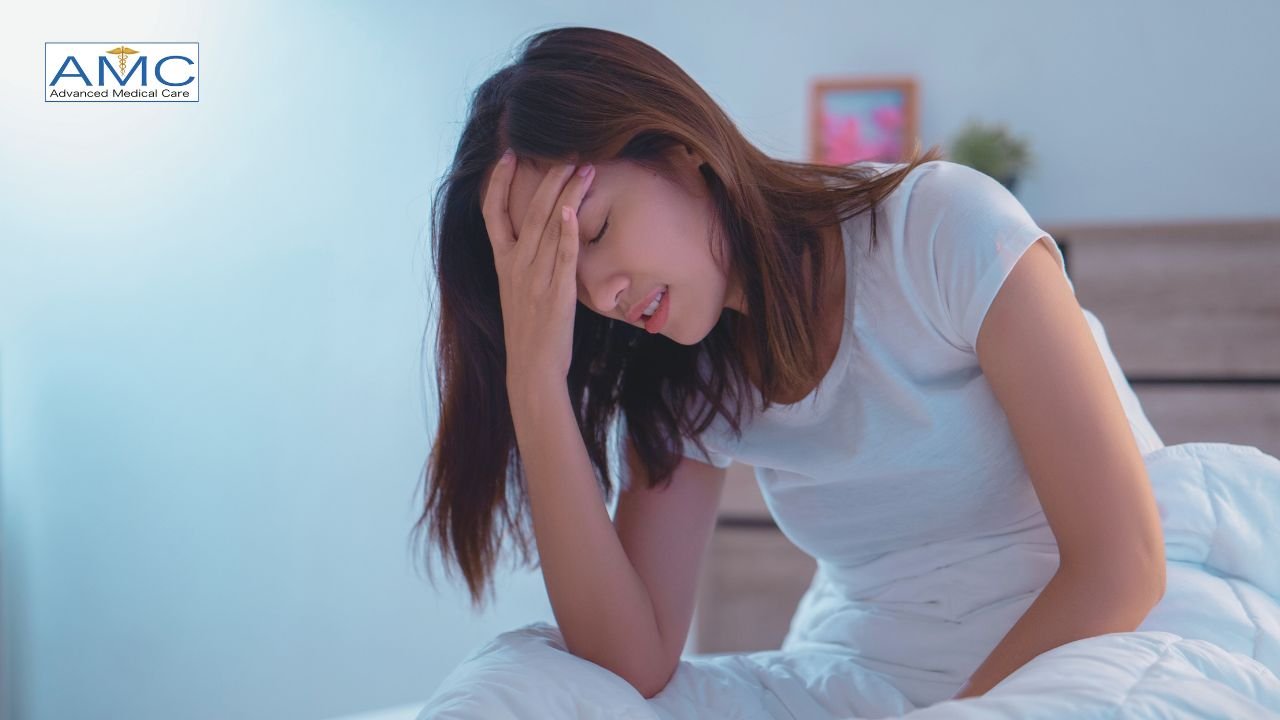
I. Common Sleep Disorders and Symptoms
Sleep is essential for overall health and well-being, but many people suffer from sleep disorders that disrupt this critical function. Understanding the types of sleep disorders and their symptoms is crucial for identifying potential problems and seeking appropriate treatment. Below are some of the most common sleep disorders and their characteristic symptoms:
A. Types of Sleep Disorders
- Insomnia
Insomnia is one of the most prevalent sleep disorders, affecting millions of people worldwide. It is characterized by difficulty falling asleep, staying asleep, or waking up too early and being unable to go back to sleep. Individuals with insomnia often feel tired during the day, have trouble concentrating, and may experience mood disturbances. Insomnia can be short-term (acute), lasting for days or weeks, or long-term (chronic), persisting for months or even years. - Sleep Apnea
Sleep apnea is a serious disorder in which breathing repeatedly stops and starts during sleep. The most common form is obstructive sleep apnea (OSA), where the throat muscles intermittently relax and block the airway. This can cause loud snoring, choking, or gasping for air during sleep, which leads to poor sleep quality and daytime fatigue. Central sleep apnea, another form, occurs when the brain fails to send proper signals to the muscles that control breathing. Sleep apnea can lead to significant health problems, including cardiovascular issues if left untreated. - Restless Leg Syndrome (RLS)
Restless Leg Syndrome is a neurological disorder that causes uncomfortable sensations in the legs, often described as itching, tingling, or crawling feelings. These sensations are usually worse at night, making it difficult to fall asleep or stay asleep. People with RLS feel an uncontrollable urge to move their legs to relieve the discomfort, which disrupts their sleep and can lead to chronic sleep deprivation. - Narcolepsy
Narcolepsy is a sleep disorder characterized by excessive daytime sleepiness and sudden, uncontrollable episodes of falling asleep, known as “sleep attacks.” These episodes can occur at any time during the day, even in the middle of activities such as talking or driving. Narcolepsy is also associated with disrupted nighttime sleep, vivid dreams, and in some cases, sleep paralysis—a temporary inability to move or speak while falling asleep or waking up. - Circadian Rhythm Disorders
Circadian rhythm disorders occur when a person’s internal body clock, which regulates the sleep-wake cycle, is misaligned with their external environment. This can result from various factors such as jet lag, shift work, or lifestyle changes. People with circadian rhythm disorders may struggle to fall asleep at the desired time, wake up too early, or feel alert at inappropriate times. These disruptions can affect daily functioning, as well as overall physical and mental health.
Understanding these common sleep disorders and their symptoms is the first step toward improving sleep health. Identifying the type of disorder you might be experiencing can help guide you to seek professional advice and treatment, ensuring better rest and overall well-being.
B. Symptoms to Watch For

Recognizing the symptoms of sleep disorders is crucial for early diagnosis and treatment. Sleep issues can often go unnoticed or be mistaken for other health problems, but certain signs may indicate the presence of a sleep disorder. Below are key symptoms to watch for:
- Chronic Fatigue or Daytime Sleepiness
One of the most common signs of a sleep disorder is feeling excessively tired during the day, even after what seems like a full night’s rest. This chronic fatigue can make it difficult to stay awake, especially during activities such as driving, working, or attending meetings. Daytime sleepiness may be a sign of disorders such as sleep apnea, narcolepsy, or insomnia, all of which interfere with the body’s ability to achieve restorative sleep. - Difficulty Concentrating or Memory Problems
Sleep plays a critical role in cognitive function, including memory consolidation and focus. Sleep disorders can disrupt this process, leading to problems with concentration, decision-making, and memory retention. If you frequently find it hard to focus, make simple mistakes, or forget important information, a sleep disorder might be affecting your brain’s ability to function properly. - Loud Snoring or Gasping for Air During Sleep
Loud, persistent snoring can be more than just a nuisance—it may be a symptom of obstructive sleep apnea (OSA). People with OSA often stop breathing multiple times during the night, which can cause them to wake up gasping for air. While the individual may not always be aware of this, their bed partner may notice the snoring or choking sounds. Snoring is often accompanied by fragmented sleep, which contributes to daytime fatigue and other health issues. - Frequent Awakenings During the Night
Waking up multiple times throughout the night is another key indicator of sleep disorders. This may be due to insomnia, restless leg syndrome (RLS), or sleep apnea, where breathing disruptions cause repeated awakenings. These frequent disruptions can prevent the body from completing its normal sleep cycles, leaving you feeling unrefreshed in the morning and fatigued throughout the day. - Mood Changes Like Irritability or Depression
Sleep and mood are closely linked, and disruptions in sleep patterns can lead to mood swings, irritability, and even depression. Insufficient or poor-quality sleep can make you more prone to negative emotions, while disorders like insomnia and sleep apnea have been associated with an increased risk of developing anxiety and depressive disorders. If you notice mood changes, especially alongside fatigue and other sleep-related symptoms, it’s important to consider whether a sleep disorder could be the underlying cause.
These symptoms may seem common or easy to dismiss, but they often signal deeper issues related to sleep health. If you experience one or more of these signs consistently, seeking medical advice can help identify the root cause and prevent further complications. Addressing these symptoms early can lead to improved sleep, better mood, and enhanced overall well-being.
II. Why Seek Help from a Sleep Medicine Specialist?

Sleep disorders can have a profound impact on your overall health and quality of life, making it essential to seek expert help when sleep issues persist. Sleep medicine specialists are trained to diagnose and treat a wide range of sleep-related problems, offering comprehensive solutions that go beyond surface-level symptoms. Here are some compelling reasons to consult a sleep medicine specialist:
A. The Importance of Expert Diagnosis
Identifying the exact cause of a sleep disorder is often challenging, as symptoms can overlap or stem from multiple underlying conditions. Sleep medicine specialists employ advanced diagnostic techniques to get to the root of the problem. One of the most common tools is polysomnography, or a sleep study, where a patient’s sleep patterns, breathing, heart rate, and brain activity are monitored overnight in a sleep lab. This detailed analysis provides insights that are often missed in standard medical examinations. In addition, specialists may recommend home sleep tests for conditions like sleep apnea, which allow for the convenience of monitoring in the comfort of your own home. These diagnostic approaches help identify specific sleep disorders such as insomnia, sleep apnea, narcolepsy, or restless leg syndrome, ensuring that treatment targets the right issue.
B. Personalized Treatment Plans
Once a clear diagnosis is made, a sleep medicine specialist can develop a personalized treatment plan tailored to your unique needs. This plan may include a combination of lifestyle changes, medical interventions, and specialized therapies. For example, if you suffer from sleep apnea, continuous positive airway pressure (CPAP) therapy may be recommended to help keep your airways open during sleep. For insomnia, cognitive behavioral therapy for insomnia (CBT-I) is often used to help retrain the mind and body to develop healthier sleep habits. Restless leg syndrome or narcolepsy may require medications, while circadian rhythm disorders might be managed through light therapy and adjustments to your daily routine. Personalized treatments are designed to address the specific causes of sleep issues, rather than just treating symptoms, providing long-lasting solutions.
C. Long-Term Health Benefits
Seeking help from a sleep medicine specialist doesn’t just improve your sleep quality; it can also have significant long-term health benefits. Untreated sleep disorders, such as sleep apnea or chronic insomnia, can lead to a host of serious health complications. For instance, sleep apnea is closely linked to cardiovascular problems like heart disease, high blood pressure, and stroke. Chronic sleep deprivation can weaken the immune system and increase the risk of developing mental health conditions such as anxiety and depression. By addressing these issues early on, a specialist can help you prevent these long-term consequences and enhance your overall well-being. Additionally, improved sleep contributes to better cognitive function, mood stability, and overall productivity, making it easier to maintain a healthy and active lifestyle.
In conclusion, seeking the guidance of a sleep medicine specialist is a critical step toward improving both your sleep and overall health. With expert diagnosis, customized treatment plans, and a focus on long-term health benefits, specialists offer the support needed to overcome sleep disorders and lead a healthier, more rested life.
III. Top Sleep Medicine Specialists in Lawrenceville, Georgia
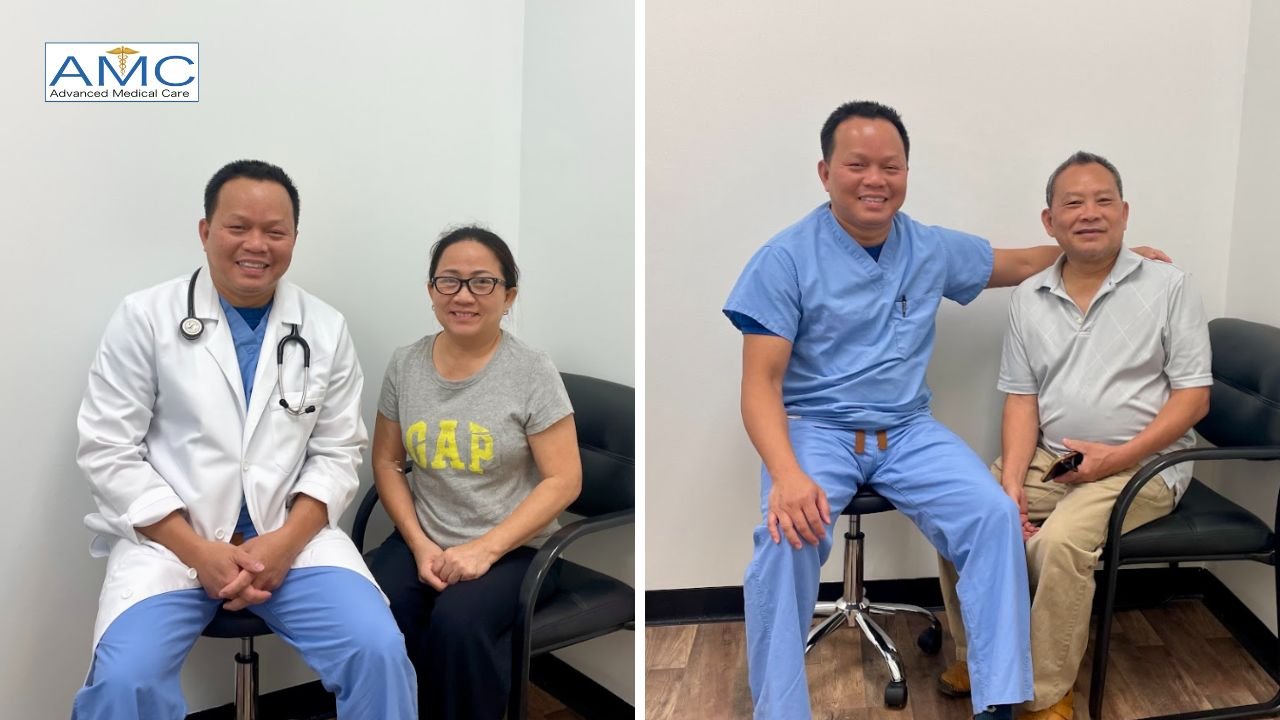
When it comes to finding expert care for sleep disorders in Lawrenceville, Dr. Dong Dang at Advanced Medical Care & Urgent Care stands out as a top specialist in the field. With years of experience and a proven track record, Dr. Đặng has helped numerous patients identify and overcome their sleep-related issues, improving both their health and quality of life.
As a highly skilled physician, Dr. Dong Dang combines his deep medical knowledge with compassionate care, offering personalized treatment plans that cater to each patient’s unique needs. Whether you’re dealing with insomnia, sleep apnea, or other complex sleep disorders, Dr. Dong Dang expertise ensures that you receive the highest level of attention and medical support.
Patients consistently praise Dr. Dong Dang not only for his technical proficiency but also for his approachable manner and commitment to ensuring their well-being. His comprehensive approach to sleep medicine includes advanced diagnostics, thorough assessments, and effective treatment options, all delivered in a welcoming and professional environment.
If you’re struggling with sleep problems, visit Advanced Medical Care & Urgent Care in Lawrenceville to benefit from Dr. Dong Dang exceptional care. Your path to better sleep and improved health starts with the right specialist, and Dr. Đặng is ready to help you achieve restful nights and refreshed days.
Contact to schedule an examination via hotline: +1-470-292-3122
Register for medical examination at the website: https://www.patientfusion.com/doctor/dong-dang-12457
Working time:
- Monday to Friday: 8:00 AM – 5:00 PM
- Saturday: 8:00 AM – 3:00 PM
Clinic address: 1180 Mckendree Church Rd, Suite 202, Lawrenceville, GA 30043
Email: staff@advancedmdcare.com
IV. Services and Treatments Offered by Sleep Medicine Clinics

Sleep medicine clinics provide a wide range of diagnostic tools and treatment options to help patients overcome sleep disorders and improve their overall health. These clinics combine advanced technology with personalized care to identify and treat the root causes of sleep problems. Below is an overview of the key services and treatments offered by sleep medicine clinics:
A. Diagnostic Tools
- Polysomnography (Sleep Study)
Polysomnography is one of the most comprehensive diagnostic tools used in sleep medicine. This overnight sleep study is conducted in a sleep lab, where various physiological functions are monitored as you sleep. The study measures brain waves, heart rate, breathing patterns, oxygen levels, and body movements to detect issues like sleep apnea, restless leg syndrome (RLS), and narcolepsy. Polysomnography provides a detailed understanding of a patient’s sleep cycles and is critical for diagnosing complex sleep disorders. - Home Sleep Tests
For patients who may not require an in-lab sleep study, home sleep study offer a convenient alternative. These portable devices are typically used to diagnose sleep apnea and monitor breathing patterns while the patient sleeps in their own home. Home sleep tests are easier to administer and provide valuable data, especially for patients with suspected obstructive sleep apnea (OSA). This option allows for greater comfort and flexibility, while still delivering accurate diagnostic information. - Actigraphy
Another tool used in sleep diagnostics is actigraphy, which involves wearing a small, wristwatch-like device that tracks sleep patterns and activity levels over extended periods of time. Actigraphy is particularly useful for diagnosing circadian rhythm disorders, as it helps monitor daily sleep-wake cycles in the patient’s natural environment. This non-invasive method provides valuable insights into sleep habits and can complement other diagnostic techniques.
B. Treatment Options
- Continuous Positive Airway Pressure (CPAP) Therapy
For patients diagnosed with obstructive sleep apnea (OSA), CPAP therapy is a highly effective treatment. A CPAP machine delivers a continuous stream of air through a mask worn over the nose or mouth, helping to keep the airways open during sleep. This prevents the breathing interruptions and snoring associated with sleep apnea, improving sleep quality and reducing the risk of related health problems like high blood pressure and heart disease. CPAP therapy is considered the gold standard for treating sleep apnea and can dramatically improve a patient’s quality of life. - Cognitive Behavioral Therapy for Insomnia (CBT-I)
CBT-I is a non-pharmacological treatment designed to address chronic insomnia by changing thoughts and behaviors that negatively affect sleep. This therapeutic approach focuses on teaching patients healthier sleep habits, such as maintaining a regular sleep schedule, creating a restful sleep environment, and managing stress. CBT-I has been proven to be one of the most effective long-term solutions for insomnia, offering sustainable improvements in sleep quality without the need for medication. - Medications
For certain sleep disorders, such as restless leg syndrome (RLS) or narcolepsy, medications may be prescribed to manage symptoms. RLS can be treated with drugs that target the neurological issues causing discomfort in the legs, while narcolepsy patients may benefit from medications that help regulate sleep-wake cycles and reduce excessive daytime sleepiness. Medications are carefully tailored to each patient’s condition and may be used in combination with other therapies for optimal results. - Lifestyle Modifications and Sleep Hygiene Coaching
In addition to medical treatments, sleep medicine clinics often provide counseling on lifestyle modifications and sleep hygiene practices. Patients are guided on how to make changes in their daily routines that can promote better sleep. This may include advice on limiting caffeine and screen time before bed, creating a calm and dark sleep environment, and establishing a regular bedtime. Sleep hygiene coaching helps patients adopt healthier habits that support restful and restorative sleep, complementing other treatment approaches.
In summary, sleep medicine clinics offer a comprehensive array of services and treatments designed to diagnose and address sleep disorders effectively. By utilizing advanced diagnostic tools and personalized treatment plans, these clinics help patients restore healthy sleep patterns and improve their overall quality of life.
V. Tips for Improving Sleep on Your Own
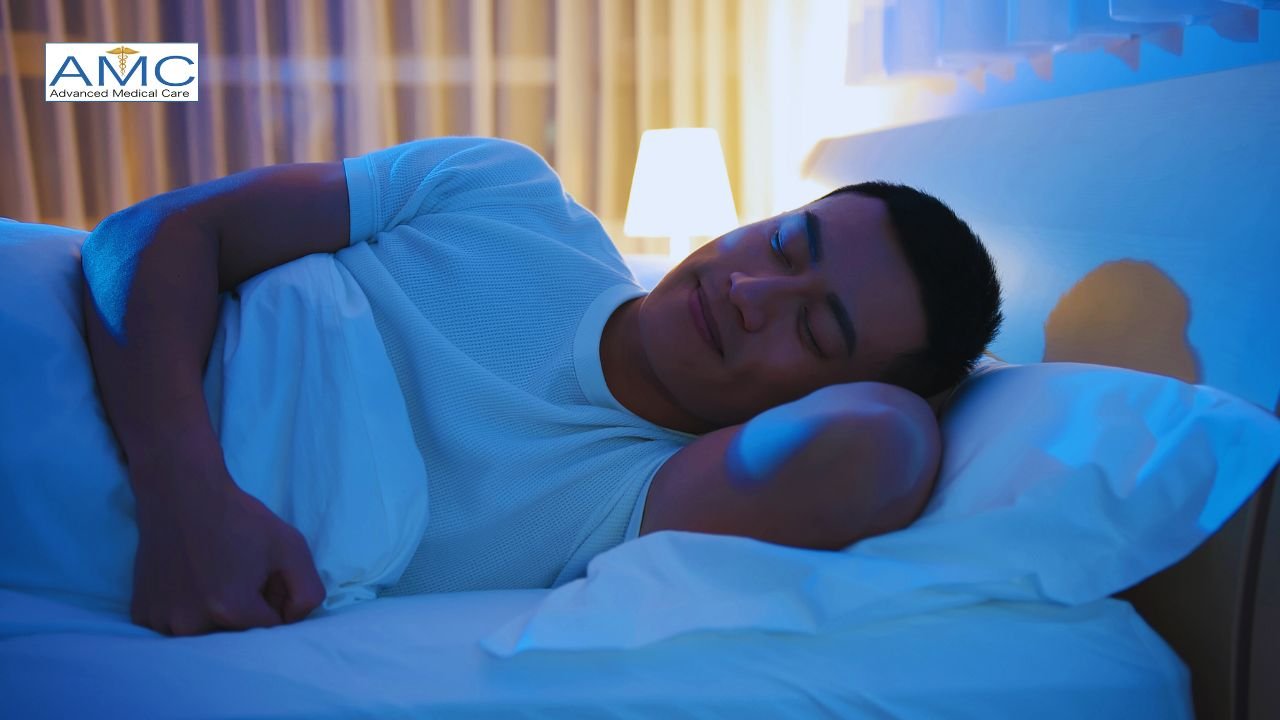
Improving sleep doesn’t always require medical intervention. By adopting certain habits and making lifestyle adjustments, you can significantly enhance your sleep quality. Here are practical tips for improving sleep on your own:
A. Practice Good Sleep Hygiene
Good sleep hygiene is the foundation of healthy sleep habits. Establishing a consistent sleep schedule is key; try to go to bed and wake up at the same time every day, even on weekends. This helps regulate your body’s internal clock, making it easier to fall asleep and wake up naturally.
Additionally, creating a relaxing bedtime routine can signal to your body that it’s time to wind down. Engage in calming activities such as reading, taking a warm bath, or listening to soft music. One crucial tip is to avoid screens—TVs, smartphones, and computers emit blue light, which can interfere with your ability to fall asleep by suppressing melatonin, the sleep hormone. Instead, disconnect from devices at least 30 minutes before bedtime to allow your brain to prepare for rest.
B. Create an Optimal Sleep Environment
The physical environment in which you sleep plays a huge role in the quality of your rest. Your bedroom should be a sleep-friendly space—dark, quiet, and cool. Darkness promotes melatonin production, so use blackout curtains or an eye mask to block out light. If outside noise is an issue, consider using earplugs or a white noise machine to create a quiet environment.
Temperature also affects sleep quality, so aim to keep your bedroom slightly cool, around 60-67°F (15-19°C), which is optimal for most people.
Lastly, invest in a comfortable mattress and pillows that provide proper support for your body. Everyone’s preferences are different, but choosing the right bedding can make a significant difference in your sleep quality and help prevent waking up with aches or discomfort.
C. Watch Your Diet and Exercise
What you eat and drink can impact how well you sleep. Avoid heavy meals, caffeine, and alcohol close to bedtime. Heavy meals can cause discomfort or indigestion, making it harder to fall asleep. Caffeine, found in coffee, tea, and certain sodas, is a stimulant that can keep you awake for hours after consumption. Even though alcohol may initially make you feel sleepy, it disrupts sleep patterns later in the night, leading to poor-quality rest.
On the other hand, regular exercise is beneficial for sleep, as it helps reduce stress and tire the body out. However, avoid intense workouts too close to bedtime, as the post-exercise energy boost can make it harder to fall asleep. Ideally, aim to exercise earlier in the day to allow your body enough time to wind down before sleep.
D. Manage Stress
Stress and anxiety are common culprits behind sleep difficulties. To manage stress and promote relaxation, incorporate relaxation techniques into your nightly routine. Meditation and deep breathing exercises can help calm the mind and reduce racing thoughts. Taking a few minutes to focus on your breathing or practicing mindfulness can ease tension and prepare your body for rest.
Journaling is another effective way to manage stress before bed. Writing down your thoughts or worries can help clear your mind, leaving you feeling lighter and more prepared for sleep.
By prioritizing relaxation and stress management, you can reduce the mental barriers that often prevent a good night’s sleep.
By following these practical tips and making small changes to your daily habits, you can improve your sleep quality without the need for medical treatments. Establishing good sleep hygiene, creating a restful environment, managing your diet and exercise, and practicing relaxation techniques can lead to more restful nights and better overall well-being.
Conclusion
Sleep is the cornerstone of a healthy and fulfilling life. If you’re facing persistent sleep problems, don’t wait until they impact your overall well-being. The top sleep medicine specialists in Lawrenceville are equipped with the knowledge and tools to help you regain control of your sleep patterns and improve your quality of life. For personalized, comprehensive care, consider visiting Advanced Medical Care & Urgent Care. With a team of experienced professionals, including specialists in sleep medicine, they are committed to diagnosing and treating your sleep issues with the highest level of care. Take the first step toward better sleep and a healthier future by scheduling a consultation today.
